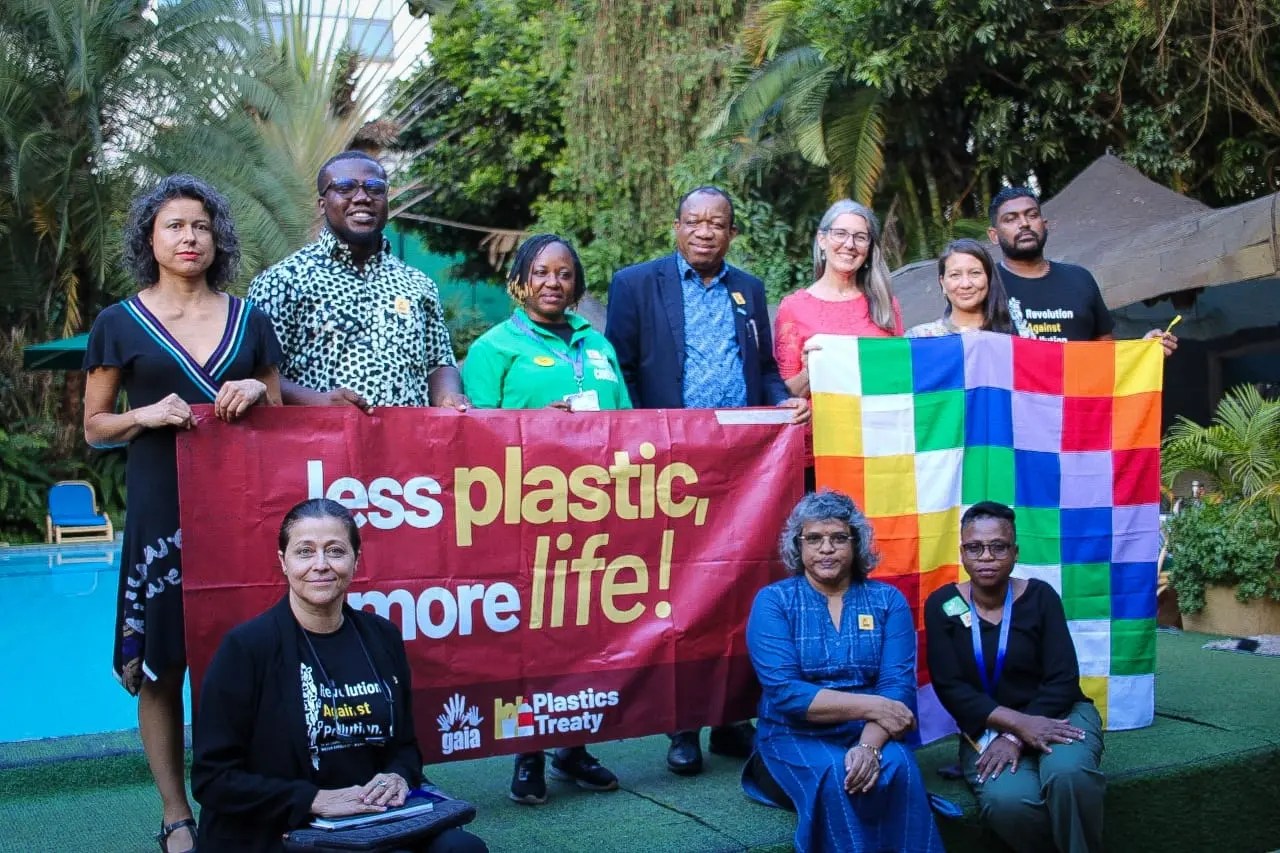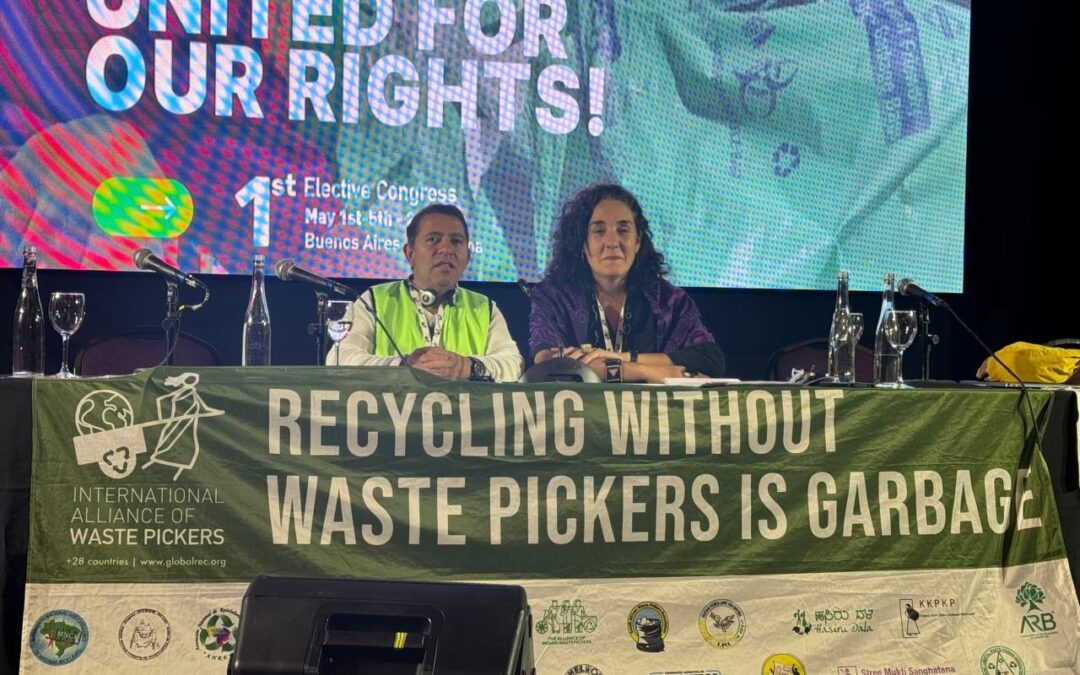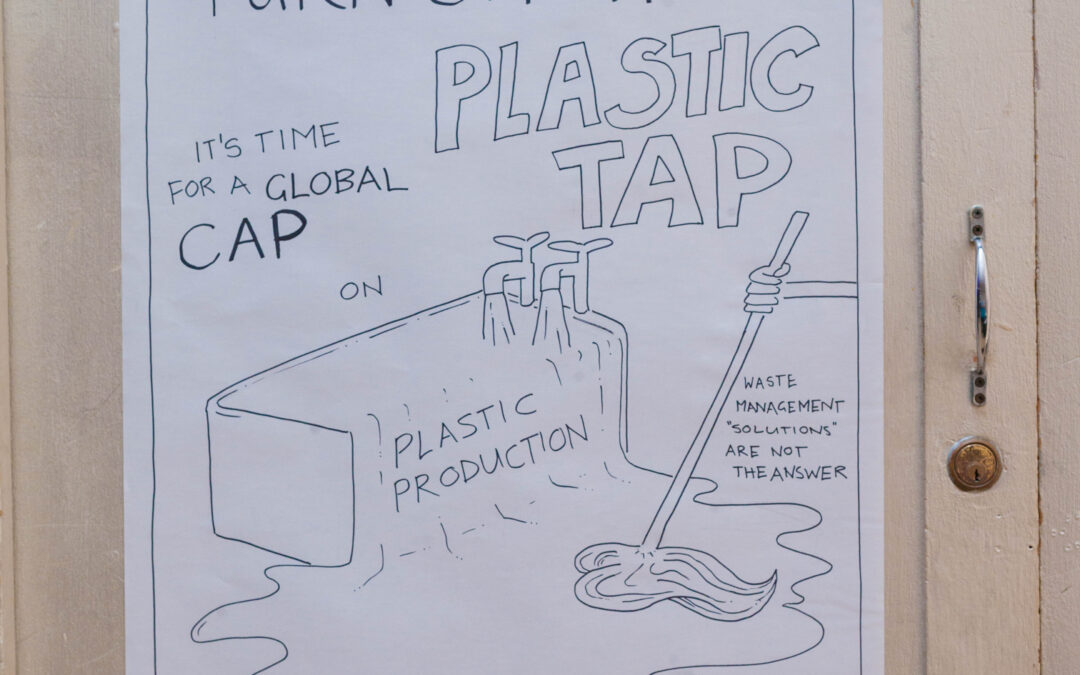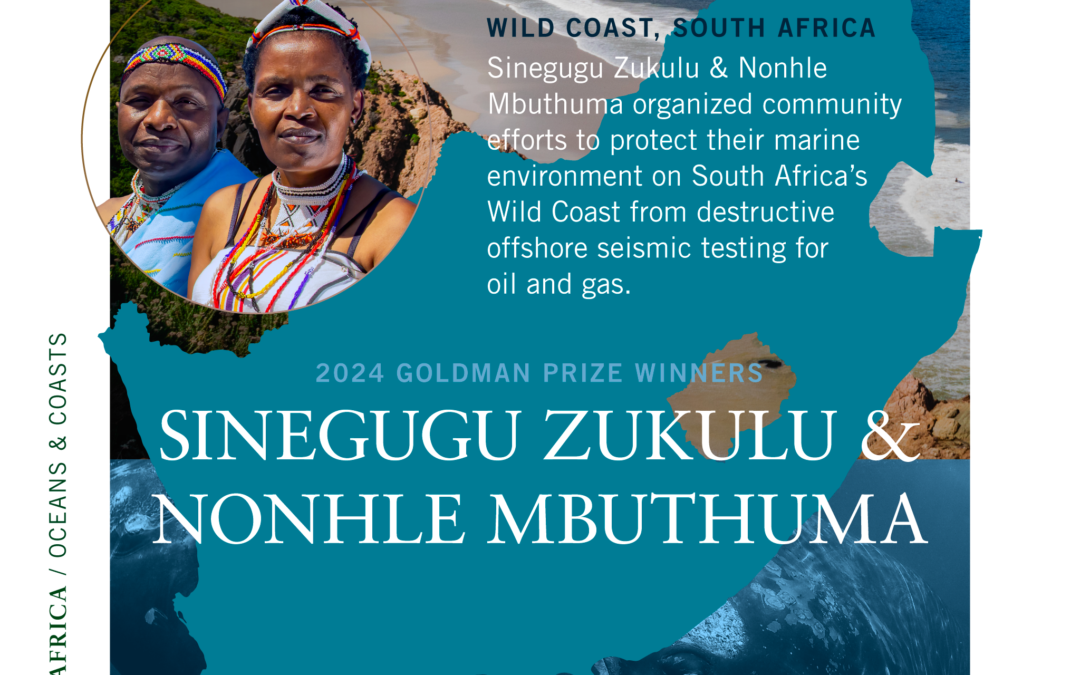
GAIA members in the Global South tackle the plastic crisis head-on at INC-3 for a Globally Binding Plastics Treaty
As the third session of the Intergovernmental Negotiating Committee (INC) on Plastic Pollution begins this week to negotiate a global plastics treaty, the Global Alliance for Incinerator Alternatives (GAIA) hosted a media briefing to voice the demands of the Global South. Featuring representatives from a coalition of civil society organizations, including Acción Ecológica México, Aotearoa Plastic Pollution Alliance/New Zealand Product Stewardship Council/Massey University Political Ecology Research Centre, Asociación Nacional de Recicladores de Chile, Consumers’ Association of Penang and Sahabat Alam Malaysia, Foundation For Environment And Development, GAIA Latin America & the Caribbean, Green Africa Youth Organisation, South African Waste Pickers Association, and the Sustainable Research and Action for Environmental Development, this united front of civil society organizations have called on their leaders to urgently address the plastic crisis.
With the problem escalating to massive proportions, the INCs stand as a decisive turning point in the battle against plastic pollution. These negotiations are not only an opportunity to address environmental concerns but also to tackle issues that affect the health and rights of individuals and communities. One of these issues is waste colonialism, which is the practice of illegal exporting of waste, from economically powerful countries in the Global North, to lower-income countries in the Global South, who are ill-equipped to handle this waste. In Latin America and the Caribbean, the trade of waste is extensive. In the period from 2018 to 2021, the shipment of plastic garbage to Mexico had a growth of 121%, according to a 2023 report.
Alejandra Parra, GAIA Latin America & the Caribbean’s Zero Waste and Plastics Advisor says that, “To stop waste colonialism, we need to reduce plastics production. To make recycling really useful, we need to reduce plastics production. To manage waste in an environmentally healthy manner, we need to reduce plastics production. To achieve the climate goals, we need to reduce plastics production. To respect human rights and planetary boundaries, we need to reduce plastics production. And that is what we must achieve with this plastics treaty that is currently being negotiated. But some countries don’t want this and are acting so this process fails. That is why we need to unite our voices because we are the ones suffering the worst consequences of plastics pollution and we need to be heard.”
Emphasizing that the plastic crisis didn’t start with the Global South, speakers stressed the need to correct a narrative that unfairly singles them out as the main culprits of plastic pollution. This narrative overlooks the significant role of the Global North, which not only contributes heavily to plastic production but also exports toxic plastic waste to developing nations, often disguising this under the guise of “trade.” With many African countries struggling with extreme poverty, they fall victim to toxic, unrecyclable plastic waste, e-waste, textile waste, and a range of different technological false solutions from corporations to attain economic development.
Merrisa Naidoo, GAIA/BFFP Africa Plastics Campaigner, underscores this point, stating, “Colonialism continues to manifest on the African continent in the form of ‘waste trade’ that permits the importation of toxic and non-recyclable waste into the continent from Global North countries.”
In detailing the situation in Africa, she explains, “Every day, markets in Accra, Ghana, and rivers in Kenya are inundated with Europe’s addiction for fast fashion, particularly plastic fiber-based apparel. This unjust practice places economic, social, and environmental burdens on Africa and its future generations. It reflects a disregard for Africa’s sovereignty and the laws in place to protect its people. Therefore, the Global Plastics Treaty must prioritize closing trade loopholes through a global plastics trade tracking system, imposing trade bans on plastics and associated chemicals post-phase-out, and strengthening the Y48 listing of plastics waste in Annex II of the Basel Convention to explicitly include paper waste contaminated with plastics, textiles, and refuse-derived fuel (RDF) to halt the dumping of these mixed plastic wastes on the continent. Africa is not a dumping ground!””
In addition, the Global South is advocating for a comprehensive set of crucial measures. These include reducing plastic production, discontinuing harmful technologies like incineration, imposing strict limits on toxic chemicals in plastics, and adopting a transparent approach to chemical use. The delegation underscores the importance of a just transition, the implementation of mandatory Extended Producer Responsibility (EPR) based on the Zero Waste hierarchy, and a steadfast commitment to translating policies into practical operational regulations. These mechanisms are important to preserve traditional knowledge within the Global South, which has abided by principles of preservation and reuse for centuries. Our investment in these systems will allow us to return to regenerative indigenous knowledge that illustrates understanding and respect for the unique ecosystems in which we live.
Arpita Bhagat, GAIA Asia Pacific’s Plastic Policy Officer, emphasizes, “Prior to the industry introducing toxic plastics into our local systems, causing harm to our land and sea; cultures in the Asia and Pacific region prioritized co-existing with nature. This cultural value has also positioned us at the forefront of adopting Zero Waste solutions.”
She goes on to say, “The most significant opportunity for addressing global plastics pollution lies in an international agreement. This agreement should advocate for a policy mechanism mandating the transition away from plastics. We need a treaty grounded in human rights and justice, recognizing the role of petrochemicals in plastics by mandating a reduction in production, banning harmful chemicals and polymers, and discontinuing polluting technologies like incineration, plastics-to-fuel, and chemical recycling. Moreover, it should underscore scaling up reuse, safeguarding indigenous peoples’ rights, and facilitating a just transition for informal workers and waste pickers away from plastics and into Zero Waste systems. To ensure the effectiveness of this instrument, a conflict of interest policy is essential to prevent the industry’s disproportionate influence on negotiations and avoid maintaining the status quo.”
Furthermore, the delegation further underlines the importance of inclusion by advocating for the participation of Waste Pickers, Indigenous Peoples, and Frontline Communities. Their focus extends to under-represented African, Asian, and Small Island Developing States (SIDS) countries, in addition to advocating for greater involvement of women and youth in global efforts to combat plastic pollution. Moreover, the delegation calls for the establishment of robust financial mechanisms to support the effective implementation of these essential measures.
The Global South is calling on the INC-3 delegates to create a strong, comprehensive, and globally binding plastics treaty that respects health, human rights, and centers justice with due consideration to the realities of the Global South. This approach underscores the interconnectedness of the plastic lifecycle, environmental justice, and the rights of marginalized communities.—–
[Ends]
###
Media Contacts:
GAIA Africa: Carissa Marnce, +27 76 934 6156,
GAIA Asia Pacific: Sonia G. Astudillo, +63 9175969286,
GAIA América Latina: Camila Aguilera, +56 9 5 111 1599;
About GAIA: GAIA is a network of grassroots groups as well as national and regional alliances representing more than 1000 organizations from 92 countries. With our work we aim to catalyze a global shift towards environmental justice by strengthening grassroots social movements that advance solutions to waste and pollution. We envision a just, Zero Waste world built on respect for ecological limits and community rights, where people are free from the burden of toxic pollution, and resources are sustainably conserved, not burned or dumped. www.no-burn.org



